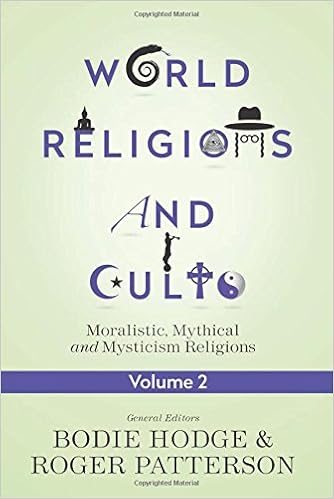Unitarianism
Definition
Unitarianism refers to any philosophy which claims that divine sovereignty is not shared in any way.
Keywords: Unitarianism, Philosophy, God, Irrational, False, Contradictory, Reality, Deductive, Universe, Time, Argument From Reason.
Veracity
Unitarian claims are false .
Proof
Simplified
Any worldview that denies an omniscient, sovereign, rational author of time and the universe allows for no possible rational justification for the assumption that reality is non-contradictory.
Premise 1: A rational, sovereign, omniscient author of time and the universe will, of necessity, eternally conceive of himself as his own ultimate reason for everything that occurs. The conception of himself will eternally be the exact representation of himself, sharing divine sovereignty, since this conception is the reason for everything that occurs.
Premise 2: Under unitarianism, divine sovereignty is not shared.
Conclusion: Therefore, under unitarianism, either there is no author of time and the universe; or else the author of time and the universe is not omniscient; or else the author of time and the universe is not sovereign; or else the author of time and the universe is not rational.
Humans assume that reality is non-contradictory. Under unitarianism, there can ultimately be no rational authority behind this assumption, making it an irrational assumption. This makes unitarianism deductively false.
In depth
Any worldview that denies an omniscient, sovereign, rational author of time and the universe allows for no possible rational justification for the assumption that reality is non-contradictory.
A. All things formed must be formed by reasoning causes for our beliefs about them to be rational.
Premise 1: Any belief formed by non-reasoning causes is believed without reason.
Premise 2: A belief about anything is caused in part by the existence of that thing.
Conclusion: Therefore, any belief about anything is believed without reason unless the existence of that thing is not formed by non-reasoning causes.
B. All things formed must ultimately be formed by only one reasoning cause for our beliefs about them to be rational.
Premise 1: In the convergence of multiple causes, the result is at least partly the result of the convergence of causes.
Premise 2: The convergence of multiple causes is not itself reasoning.
Conclusion: Therefore, any belief formed by the convergence of multiple ultimate causes is believed without reason.
C. God conceives of himself as his own reason.
Premise 1: If all things formed are formed by one reasoning cause (from B above), it itself is the only reason for them.
Premise 2: Anything that reasons, and has only one reason, conceives of that reason.
Conclusion: Therefore, if all things formed are formed by one reasoning cause, it conceives of it itself as the reason for them.
D. Divinity is shared in any rational god.
Premise 1: With a rational god, god's reason is god himself.
Premise 2: There is a distinction between the concept and the thing conceived of.
Conclusion: Therefore, with a rational god, divinity is shared between the concept and the thing conceived of.
Humans assume that reality is non-contradictory. Under unitarianism, there can ultimately be no rational authority behind this assumption, making it an irrational assumption.
This Argument from Reason demonstrates that unitarianism is deductively false.

Gilbert Guttlebocker, Defender of Dragons
Riveting, yet absurd; romantic, yet innocent; Gilbert Guttlebocker, Defender of Dragons is a little Roald Dahl, a little Harry Potter, and a little Chronicles of Narnia, all rolled into one. Timothy McCabe collaborates with the great Benedict Ballyhoot to bring you the novel of the century!

In Printed Form
Along with numerous other authors including Don Landis, Bodie Hodge and Roger Patterson, Timothy McCabe contributes analyses of various world religions and cults in this volume from Master Books.
Other Writings
"Would you please provide step-by-step logic, or point me to where I might find it, for your statements about atheism and polytheism?"
Sure. Here is how I see it. First, we demonstrate that infinite regress is incoherent. 1. Infinite Regress is logically incoherent. Infinite regress would mean that we have completely iterated, one-by-one, through every single item of an infinite series. If we were to go backwards through each previous item, and there were an infinite number of past items, there would necessarily be some item in the set of previous items that we would never, ever get to.
Continue reading...
"When did your religion or worldview first begin?"
This question requires a two-pronged answer. When God created man, at the beginning of creation, man recognized God and worshipped Him in the way God ordained. In this sense, the worship of the Christian God and reliance on His grace (which is the essence of Christianity) has been around since the time of the very first man, Adam.
Continue reading...
"Does Michael Martin's "Atheist's Wager" really show that leading a good life is more important than belief in God?"
No, it doesn't. I'll explain. According to Wikipedia (at the time of this writing), the Atheist's Wager states that if one were to analyze their options in regard to how to live their life, they would arrive at the following possibilities: (A) You may live a good life and believe in a god, and a benevolent god exists, in which case you go to heaven: your gain is infinite.
Continue reading...